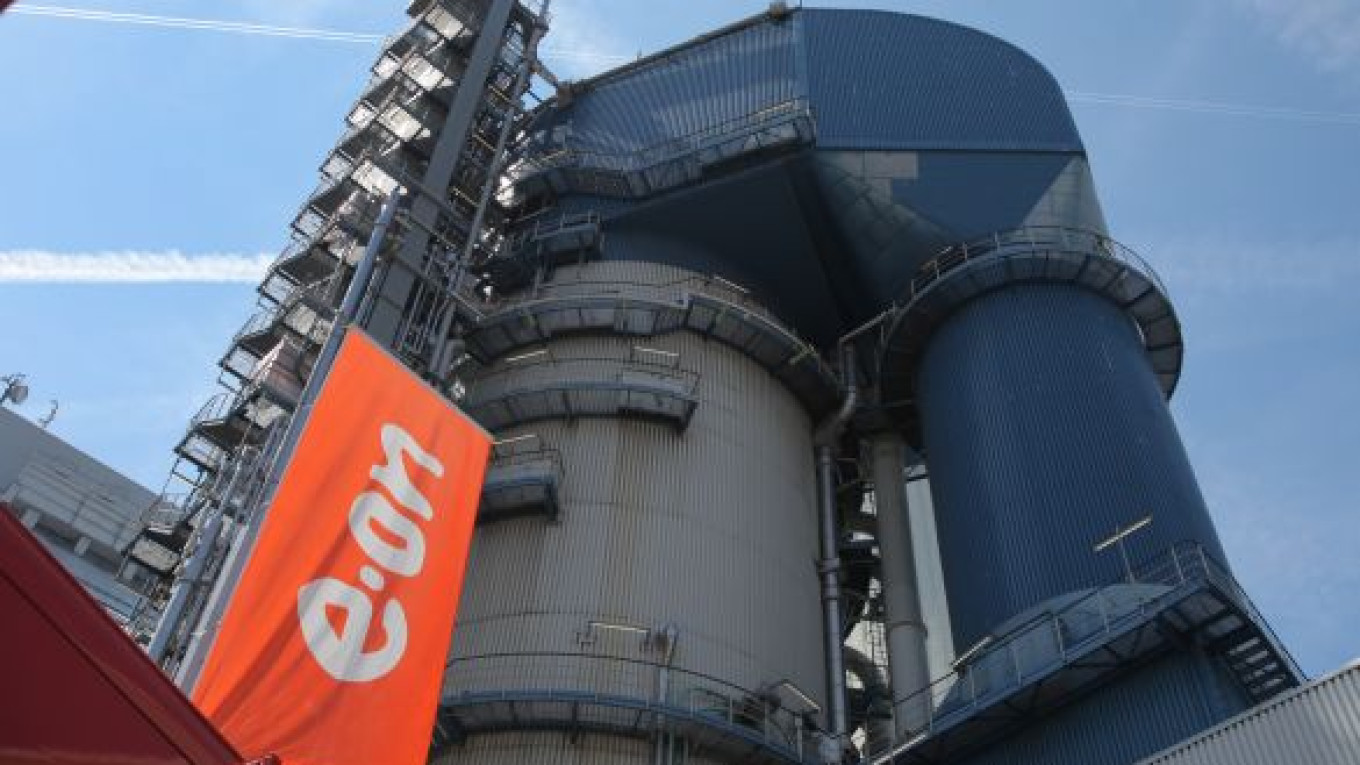Germany's E.On is asking Gazprom to lower its prices for gas again, after convincing the export monopoly to give way on prices just this spring.
Last year was the first time that Gazprom had to deal with a sales crisis: Its gas output was the lowest in its history, and exports to Europe plummeted by 11.5 percent — and not only because of the conflict with Ukraine.
The large difference between Gazprom's prices and those of its competitors in Europe took a serious toll.
"We're not opportunists," Gazprom Export chief executive Alexander Medvedev loved to repeat when explaining why Gazprom would not give discounts during the crisis.
Eventually, however, it had to give way. In 2009, several large European partners demanded that Gazprom adjust to the changes in the retail environment, according to a January report by Medvedev for Gazprom's board. Russian gas was losing its competitiveness because of its high prices compared with gas from Norway, the Netherlands, Qatar and other countries.
Germany's E.On, Wingas and RWE, Turkey's Botas, Italy's Eni, France's GDF Suez, Austria's EconGas, Finland's Gasum and other companies demanded that Gazprom lower its prices and ease the terms of its contracts, spokespeople and sources close to the companies said.
Ultimately, at least five clients got discounts, and the average analyst estimate for Gazprom's lost revenue was about $2 billion for this year alone.
But the story did not end there, as Gazprom is preparing for a new standoff. One of its biggest buyers, E.On Ruhrgas, is again asking for lower prices because its clients are demanding them, a Gazprom employee and an executive at one of its subsidiaries told Vedomosti. The sources did not say whether talks had already begun.
"We are always in talks with all of our suppliers on bringing their terms into accordance with the market environment," E.On spokesman Kai Krischnak said, declining further comment.
E.On chief executive Johannes Teyssen, however, already warned at the beginning of August that the company would start to lose profits by October if its main suppliers did not lower their prices, Platts reported. He also said the company would hold talks with all its suppliers in hopes of reaching deals by the end of the year.
Other buyers have not yet approached Gazprom about lower prices, one of Vedomosti's sources said, adding that it could not be ruled out.
A Gazprom spokesperson said none of its European clients was holding such talks with the company.
At the beginning of the year, E.On was able to secure an agreement under which it would get part of its gas at spot prices until the end of 2012, a Gazprom spokesperson said earlier. The share going for spot prices is about 15 percent, a Gazprom employee said.
That could cost Gazprom about $200 million in revenue, based on the volume of E.On's purchases in Russia last year (about 14 billion cubic meters), as well as the difference between Gazprom's forecast for the average price in Europe this year and the average spot prices at Britain's NBP for the first half of the year (about $300 per 1,000 cubic meters, compared with $207).
Vedomosti was unable to determine what kind of discount E.On is seeking now. But Gazprom's biggest competitor in Europe, Norway's Statoil, agreed to sell up to 30 percent of its gas at spot prices, said a Gazprom employee. Statoil does not disclose the figure.
Gazprom's long-term contracts allow clients to ask for altered terms if there is a significant change on the market. Spot prices, which rose at the beginning of the year, are falling again, the Gazprom employee said. The average price for gas in the U.S. Henry Hub in the first quarter was $195 per 1,000 cubic meters, and now it is down to $156.
Gazprom does not think that it should give way, however. Statoil's sales are increasing, with a 22 percent year-on-year growth in the second quarter, compared with 1.6 percent growth in Gazprom's European exports, but the Norwegian firm is losing out in profits, one of Vedomosti's sources said.
A Message from The Moscow Times:
Dear readers,
We are facing unprecedented challenges. Russia's Prosecutor General's Office has designated The Moscow Times as an "undesirable" organization, criminalizing our work and putting our staff at risk of prosecution. This follows our earlier unjust labeling as a "foreign agent."
These actions are direct attempts to silence independent journalism in Russia. The authorities claim our work "discredits the decisions of the Russian leadership." We see things differently: we strive to provide accurate, unbiased reporting on Russia.
We, the journalists of The Moscow Times, refuse to be silenced. But to continue our work, we need your help.
Your support, no matter how small, makes a world of difference. If you can, please support us monthly starting from just $2. It's quick to set up, and every contribution makes a significant impact.
By supporting The Moscow Times, you're defending open, independent journalism in the face of repression. Thank you for standing with us.
Remind me later.


